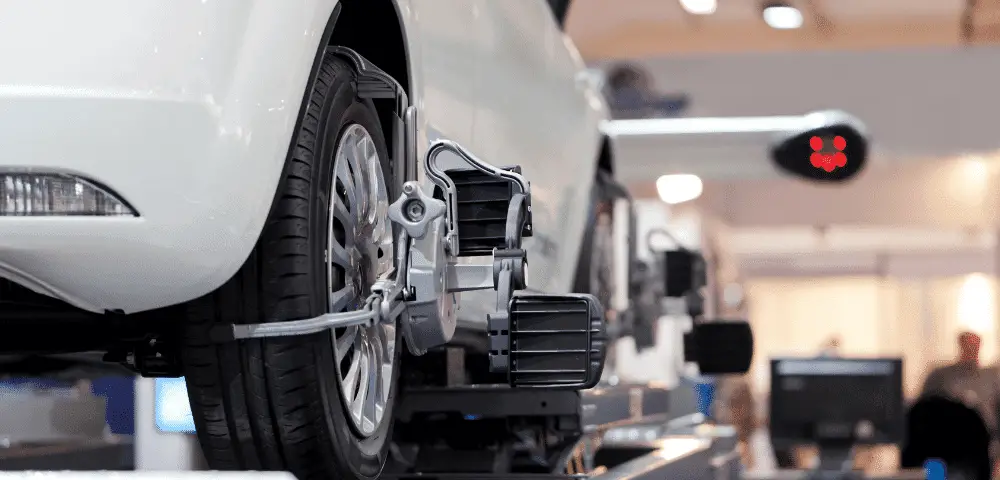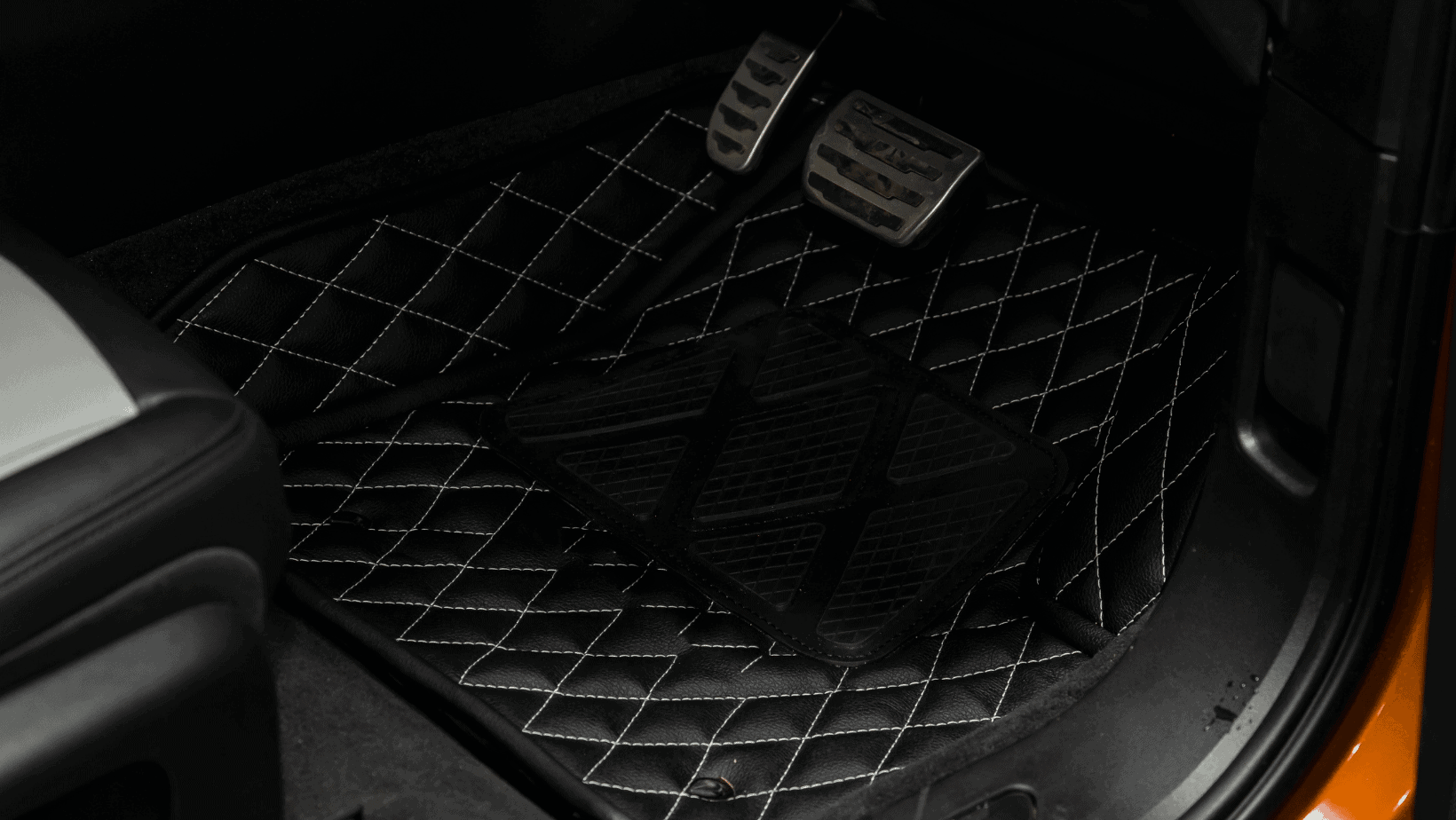If you’ve been driving for quite some time now, some things would become clearer to you about vehicles.
You will know when there is something wrong with your car – say, for instance, you could feel a vibration through your car floor, there are different reasons why that could happen.
The aim of this article is to discuss this problem and its causes for general car maintenance.
Why is my car floor vibrating?
When you drive, your car is supposed to be at its optimum best – no noise or vibration – just a vehicle moving freely and smoothly on the road. However, if you start experiencing noises or frequent vibrations, you should check out your vehicle.
Different things could cause a vibrating car, and it is important that you pay attention to where the issue is coming from.
If the floor of your car is vibrating, the common reasons could be:
Tires
One of the major reasons why a car floor is vibrating is the tires. Some of the major tire problems include:
1. Uneven tire wear
Every tire has tread wear that determines its usability on the road. This tread wear needs to be even for good movement. However, if it becomes uneven, you could face serious problems.
Uneven tire wear could happen as a result of road hazards – especially when the tires are misaligned due to impact. And if you don’t repair it immediately, a blowout or an accident is inevitable.
2. Flat or Underinflated Tires
Another reason why your car would vibrate is if you have flat or underinflated tires. You may not notice immediately but when you drive at faster speeds and experience vibrations or noise, then you should know there is a problem.
It is often advised to check for flat spots in your tire frequently to see if the air pressure is still intact. You can also check the information in the owner’s manual concerning the ideal air pressure for a car.
3. Tire Imbalance
On the other hand, if you move at lower than normal speeds and discover a car vibrating or shaking, the problem could be as a result of tire imbalance.
Road hazards are also responsible for this issue, i.e., keeping tires out of balance.
You can also properly diagnose by checking out the flat spots on the tires.
Low Rolling Resistance Tires
Low rolling resistance tires seem like a better and more affordable option for many drivers of EV and hybrid cars. However, these tires are vulnerable and can experience frequent vibrations.
4. Defective Tires

Lastly, a car vibrates due to a bad or defective tire.
If you don’t get a good tire from a reliable brand, within a few weeks or months of use, you could experience issues (like a worn-out tire) and ultimately a blowout.
5. Wheels
While your tires could be the cause of the problem, you should also check out your wheels (and suspension system). Since both of them are linked, there are a number of things that could happen.
6. Bent/Damaged/Cracked Wheels
If you frequently encounter deep potholes, curbs, or road hazards, there is a good chance that your wheels would be affected.
And once the wheels are problematic, i.e., bad, cracked, or bent, it doesn’t take time before you start experiencing shaking, noise, or vibrations from your car.
Thus, it is important that you inspect your wheels regularly. If it could be repaired, you should do that; however, if you have to get a new one, don’t hesitate to do that.
7. Wheel Bearings
Damaged wheel bearings could also be another reason why you are experiencing vibrations on your car’s floor. Although they are designed to last for long, some circumstances could result in their worn out or damaged.
Brakes
If you’ve inspected your car tires and wheels properly and cannot find the problem, the one more place to check is the brake pads. They could also be responsible for a car vibrating.
8. Brake Pedal or Disc
Brake discs are designed thick and sturdy. However, if you press on your brake and realize that it vibrates, the brake rotors or discs could have developed issues – most times, experiencing excessive wear and tear.
9. Brake Drums
The experience with brake rotors is also the same with brake drums. The only way you can differentiate them is that a faulty brake drum comes with a scraping or squealing noise.
10. Engine and Transmission Mounts
A car’s engine could also be one of the reasons why your car is vibrating.
If you stop your car with the engine running and there’s noise or the car shakes, then there is a problem with the engine and transmission.
In the engine compartment, there is a transmission mount that transfers engine power; if that mount is damaged, vibration is inevitable.
Apart from the engine mounts, a broken radiator fan could be the problem you have. The engine may not get enough coolant from the radiator to cool off or reduce temperature due to this issue.
If this (engine’s vibrations) persists, you develop further engine problems until it eventually knocks.
Vibrations in other places
Apart from your car’s floor, there are other places where you could experience vibrations when driving. If you notice anything strange in these areas, you should seek help immediately.
Vibration in the Seat
Vibrations in the seat are not any different from those on the floor. It could also be a result of improperly inflated tires, poorly manufactured tires, tire wear, or tire imbalance.
If you have any tire issues, it is best that you fix them immediately – get a tire replacement or repair. You don’t want to experience a serious blowout while driving at certain speeds.
Vibration in the Steering Wheel
There are different factors responsible for vibrations in the steering wheel. They include wheel runout, loose wheel bearings, or misaligned wheels.
When the steering wheel shakes, the first thing you need to check is the various components within the wheel.
If one or two of these steering components aren’t in good condition, you should have them replaced immediately while you can still see these symptoms. Getting a new wheel can be expensive.
You can call a wheel alignment service to help you with whatever problem that may affect your steering wheel.
Vibration When Braking
Apart from car vibration in the steering wheel, you could also have one when brake pedals are applied.
When you press on your brake pedals and experience issues like long braking time, vehicle pull, or squealing noise, that means there is a problem with the brake calipers or rotors.
If you have a worn-out or warped brake rotor, you should consider getting new brake pads.
Vibrating through the gas pedal?
There are also situations where you will experience vibrations coming from your gas pedal. If that happens, that means you have an exhaust leak caused by a clogged fuel filter.
The hazardous fumes passing through cracks or holes could cause vehicle vibration.
How do I stop my vibration from coming through the floor?

If you have a vibrating car floor, there is no two-way solution but to solve the problem. First, you need to identify the exact problem, i.e., suspension system, steering wheel, motor mounts, brakes, or tires.
If it is with the tires, you should invest in good sets from reliable brands in the industry.
If it is with the engine mounts, get new spark plugs and other components. If the problem is with the wheels, you should get your wheels aligned or consider buying new front and rear axles.
New brake rotors and pads should also help fix the issue if the problem is with the brakes.
How is a car vibration diagnosed?
There are different ways to diagnose car problems, especially if it involves vibrations.
For an engine-speed problem, put your vehicle in park or neutral and raise the engine speed. If you get a vibration each time you do this, then there is a problem.
If you have unbalanced wheels or axle problems, then there is an issue you need to fix.
If the vehicle pulls when you step on the brakes, then you need new brake pads.
If you experience tire issues often, you should check the tires or wheels.
Is it safe to drive a car that vibrates?
No, it isn’t. A vibrating car could endanger you as a driver.
For instance, if you have improperly inflated tires, it is only a matter of time before you experience a tire blowout.
The same goes for wheel runout or any wheel issue whatsoever.
Conclusion
If you notice your vehicle has been giving off strange signs, noises, or vibrations, it doesn’t cost you anything to check it out.
There are different places vibration can be coming from; it is your responsibility to identify where and find ways how to fix the problem.
The best professional advice is to call a mechanic or a brake specialist to check out the problem and restore your car to its perfect health.


